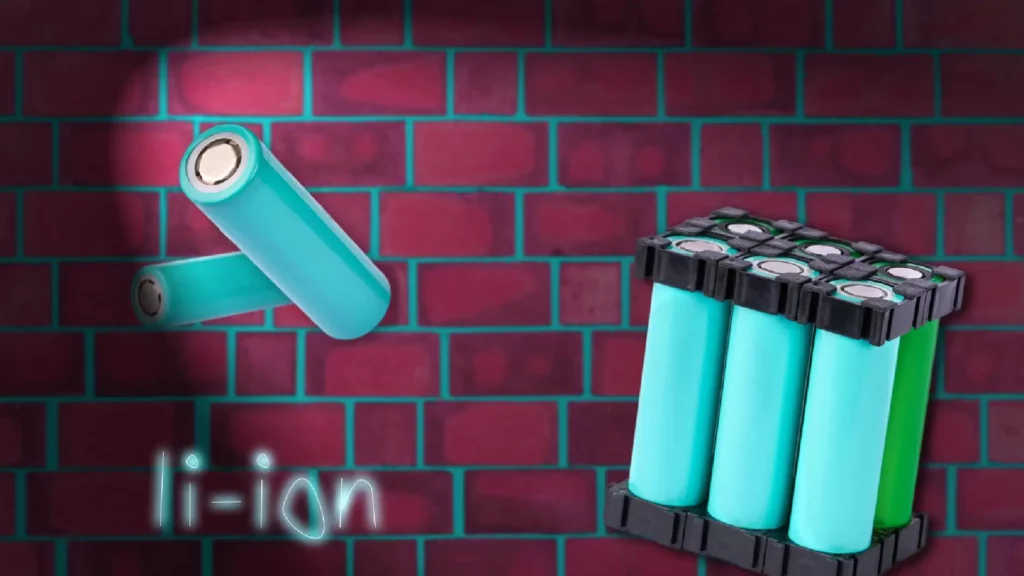As a tech enthusiast, I've always been fascinated by how the small components in our gadgets can have such a huge impact on our daily lives. This intrigue grew when I faced constant issues with my smartphone's battery.
It wouldn't last a whole day, and I found myself tethered to a power outlet more often than not. This frustration led me down a rabbit hole of research into Li ion Battery Efficiency.
This guide is a culmination of my journey, exploring the nuances of Li ion battery efficiency, and how we, as users, can make the most out of them.
Understanding Li ion Battery Efficiency
The Fundamentals of Li ion Battery Efficiency
Li ion battery efficiency is an incredible feat of engineering, with cathodes and anodes forming their core.
Layers separated by a separator soaked in electrolyte allow lithium ions to move between electrodes.
Charging stores energy as ions move from cathode to anode, while discharge releases energy as ions return to the cathode as electrical power.
Superiority Over Other Battery Types
Li ion battery efficiency became the industry standard due to their high energy density, storing more power per unit of weight.
They're perfect for portable electronics, with a low self-discharge rate and no memory effect.
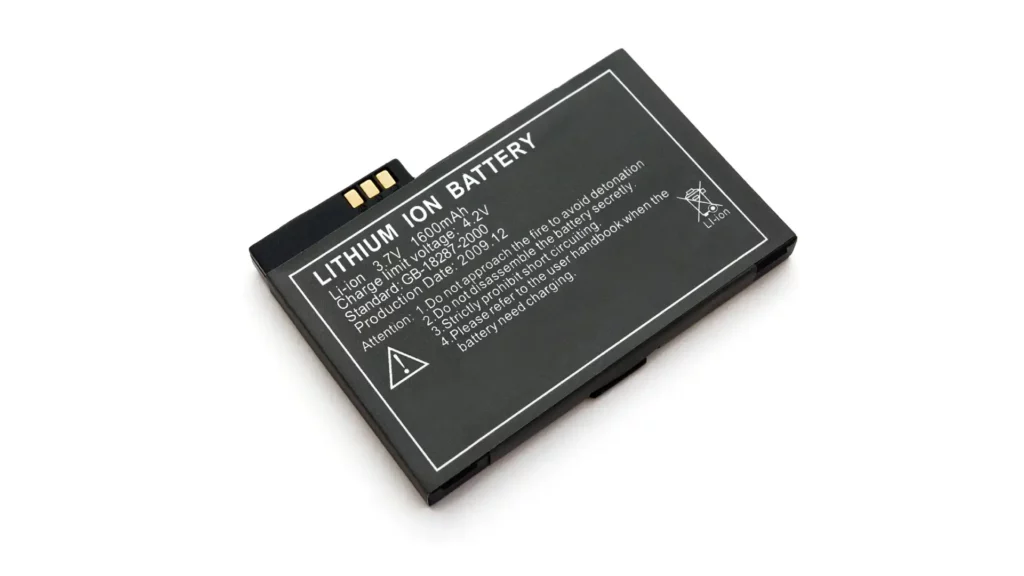
How Efficient is a Lithium Ion Battery
When it comes to evaluating lithium-ion batteries, one of the key questions that often arises is, How efficient is a lithium ion battery? Efficiency in lithium-ion batteries plays a crucial role in determining their overall performance and impact on our daily lives.
- Chemical Efficiency
Lithium-ion batteries work by lithium ions moving between positive and negative electrodes. Better materials and engineering lead to higher chemical efficiency for more effective energy conversion.
- Voltage and Current Efficiency
Efficiency is affected by voltage and current management in batteries. High voltage efficiency ensures a stable power supply
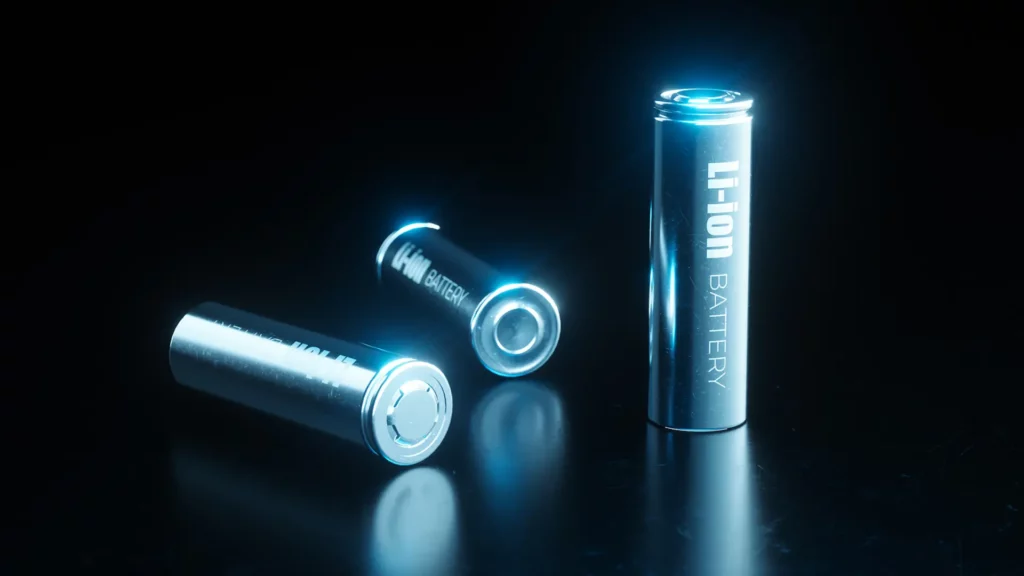
Key Factors Influencing Li ion Battery Efficiency
- Temperature: Maintain between 20°C to 25°C (68°F to 77°F). Avoid exposing to high heat or freezing conditions.
- Charging Practices: Best between 20% and 80% charge. Overcharging or deep discharging can harm longevity.
- Capacity and Usage: Select capacity for a balance between longevity and practicality. Higher capacity increases size and weight.
- Discharge Rate: Slower discharge rates prolong battery life. High-drain applications can shorten battery lifespan.
- Age of the Battery: Efficiency decreases with age. Replace older batteries to maintain performance.
- Quality of the Battery: Higher-quality batteries tend to have better efficiency and longevity.
- Usage Patterns: Frequent, heavy use can reduce battery life. Moderate and consistent use promotes longevity.
- Storage Conditions: Store in a cool, dry place. Long-term storage at extreme temperatures can damage the battery.
- Battery Calibration: Occasionally fully discharging and then fully charging can help calibrate battery life indicators.
- Firmware and Software: Keep device firmware and software updated. Optimizations can improve battery management and efficiency.

Achieving Peak with Efficiency Lithium ion Battery
Efficiency lithium ion battery not only provides longer usage times but also reduces waste heat, which can contribute to better overall device performance.
Let's explore how various factors influence the efficiency lithium ion battery and how you can harness this knowledge to your advantage.
Temperature Management for Efficiency
Efficiency lithium ion battery is highly sensitive to temperature. When the battery gets too hot or too cold, its efficiency can drop significantly.
- Temperature's Impact on Efficiency: Extreme temperatures can cause irreversible damage to the battery. High temperatures can lead to thermal runaway, while low temperatures reduce the ions' mobility within the battery.
- Maximizing Efficiency through Temperature Control: To maintain peak efficiency, it's crucial to keep your devices within the recommended temperature range.
Charging Strategies for Efficiency
The efficiency lithium ion battery is closely tied to charging practices. Charging your battery correctly can significantly impact its efficiency and lifespan.
- Avoid Overcharging for Optimal Efficiency: Overcharging, or leaving your device plugged in even when the battery is fully charged, is a common practice that can harm battery efficiency.
- Optimal Charging Levels for Efficiency: To maintain efficiency, aim to keep your lithium-ion battery between 20% and 80% charged.
Capacity Management and Efficiency
The efficiency lithium ion battery is also related to their capacity. While a higher capacity may seem advantageous, it's important to strike a balance between capacity and practicality.
- Capacity's Impact on Efficiency: Higher capacity batteries can store more energy, providing longer usage times between charges.
- Efficiency Through Proper Capacity Selection: Select a battery with a capacity that aligns with your device's needs.
Smart Charging Practices for Efficiency
The efficiency lithium ion battery can also be enhanced through smart charging techniques.
- The Role of Smart Chargers: Using smart chargers that automatically stop charging when the battery reaches full capacity is an efficient practice.
- Fast Charging: When to Use It: While fast charging is convenient, it generates more heat and can stress the battery if used excessively.
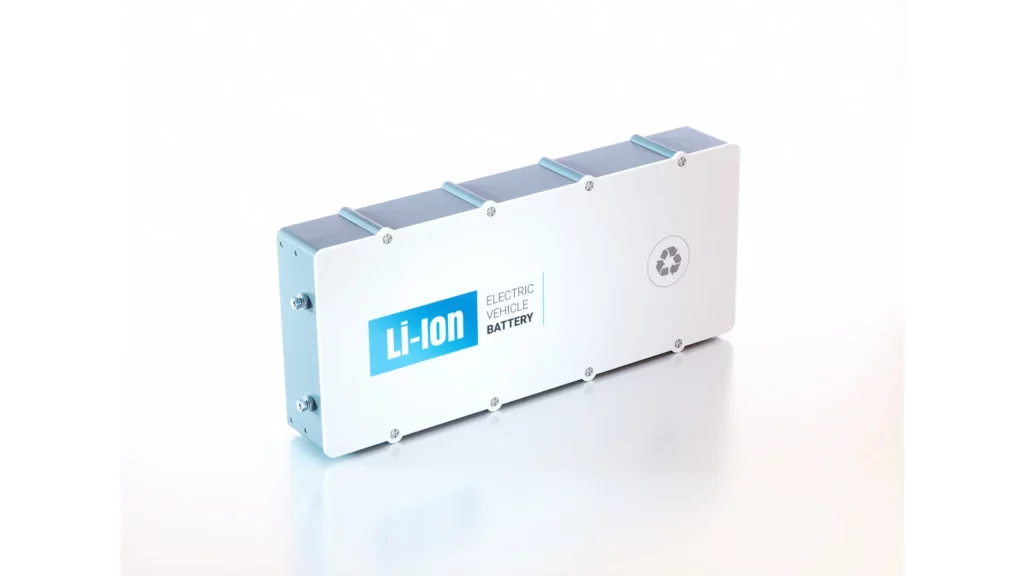
Maximizing Li ion Battery Efficiency
- Smart Charging: Use chargers that automatically stop when full to prevent overcharging. Avoid charging overnight and use fast charging only when necessary to minimize battery stress.
- Maintenance and Storage: Store batteries in a cool, dry place, ideally at a 50% charge level for long-term storage. Periodically calibrate by fully discharging and then recharging to maintain accurate battery level readings.
- Selecting the Right Battery: Choose a battery based on your device's specific needs, focusing on the right balance of capacity, size, and weight. Always prefer batteries recommended by the device manufacturer for optimal compatibility and performance.
- Regular Cleaning of Contacts: Clean battery contacts regularly to ensure efficient power transfer, which can enhance charging and overall battery performance.
- Avoid Extreme Usage: Steer clear of applications or settings that rapidly drain the battery, as this can shorten its overall lifespan.
- Utilize Energy-Saving Modes: Engage your device's energy-saving settings to reduce battery consumption and extend its life.
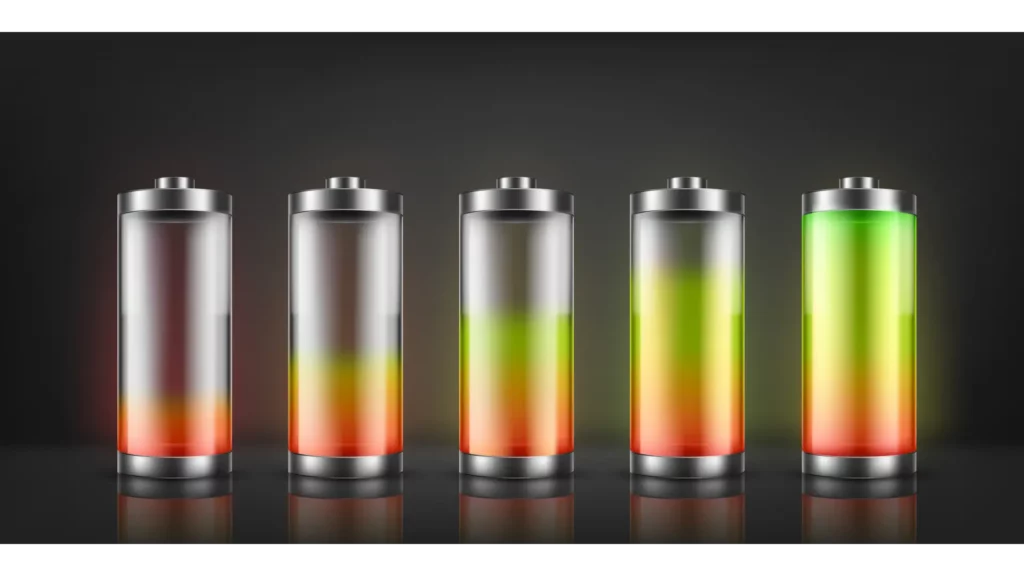
The Importance of Typical Battery Efficiency
Battery efficiency is a critical aspect of modern electronic devices, and understanding its significance is essential for users and manufacturers alike.
Let's explore why typical battery efficiency is of utmost importance:
- User Convenience and Productivity: Efficient batteries enhance user convenience and productivity by reducing the frequency of recharging.
- Cost Savings: Efficient batteries can lead to cost savings in the long run.
- Enhanced Mobility: In portable devices like smartphones, tablets, and wearables, battery efficiency is directly tied to mobility.
- Sustainable Technology Adoption: As technology becomes more integrated into our lives, there is a growing emphasis on sustainable practices.
- Competitive Advantage: For manufacturers, developing and incorporating efficient batteries into their products can provide a competitive advantage.
- Economic and Environmental Impact: On a larger scale, the economic and environmental impact of battery efficiency cannot be understated.
The Energy Efficiency of Lithium-Ion Batteries
Lithium ion batteries energy efficiency is vital for converting stored energy into usable power. Optimizing this efficiency is crucial for their performance and sustainability.
The energy efficiency of lithium ion batteries is highly efficient, converting chemical energy to electrical energy without wasteful losses.
the energy efficiency of lithium ion batteries is highly energy efficient due to minimal energy loss during charge and discharge cycles.
This maximizes device lifespan and reduces environmental impact.
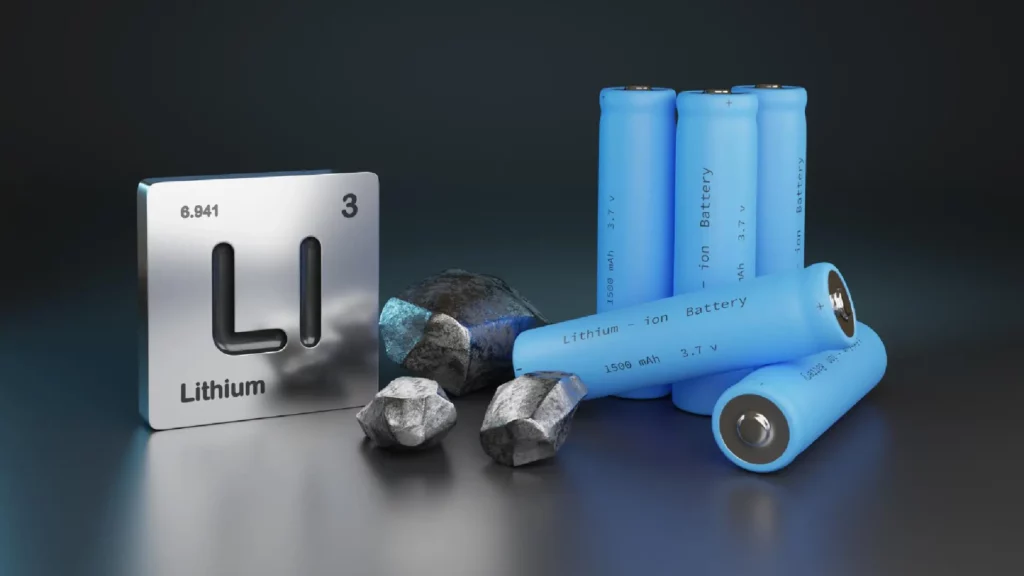
The Quest for the Most Efficient Lithium ion Battery
Lithium-ion batteries have come a long way since their inception, and advancements continue to be made in pursuit of the most efficient lithium ion battery.
- High Energy Density: Achieving high energy density is a vital factor in lithium-ion battery research. Batteries with high energy density can store more power in smaller and lighter packages, making them ideal for portable devices and electric vehicles.
- Solid-State Batteries: Solid-state batteries are a promising innovation in the quest for efficiency, and are considered a game-changer in achieving the most efficient lithium ion battery.
- Silicon Anodes: Silicon has gained attention as a potential anode material that could significantly boost the capacity of lithium-ion batteries.
- Advanced Charging Algorithms: Efficiency isn't just about energy storage; it's also about battery lifespan.
- Sustainable Materials: Efficiency extends to environmental impact. Researchers are exploring sustainable materials for lithium-ion batteries, including non-toxic and recyclable components.
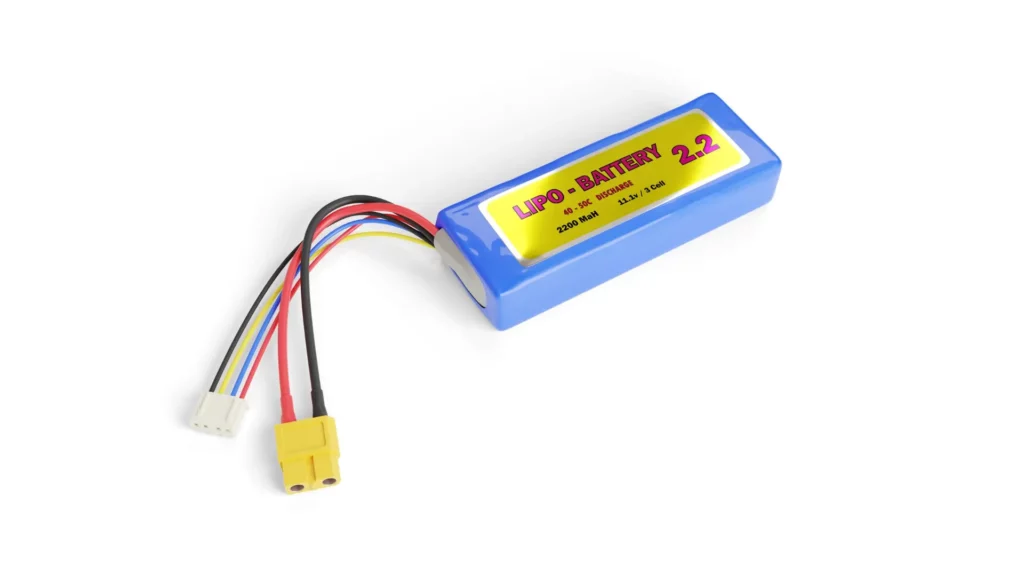
What is LiPo Battery Efficiency?
LiPo battery efficiency, like their Li-ion counterparts, are a common choice for various applications, including remote-controlled vehicles, drones, and radio-controlled devices.
LiPo battery efficiency refers to how effectively these batteries convert stored energy into usable power. It's crucial to maximize efficiency to ensure longer runtimes and better overall performance in your devices.
Factors Influencing Lithium Polymer Battery Efficiency
Lithium polymer battery efficiency is affected by several factors, and understanding these can help you optimize their performance:
- Discharge Rate: The rate at which a LiPo battery discharges power affects its efficiency. Lower discharge rates are generally more efficient, as they reduce the heat generated during use.
- C-rating: The C-rating of a LiPo battery indicates its maximum safe continuous discharge rate. Choosing a battery with an appropriate C-rating for your device's power demands is essential for efficiency.
- Temperature: Just like Li-ion batteries, LiPo batteries are sensitive to temperature. Extreme heat or cold can reduce their efficiency. Operating LiPo batteries within the recommended temperature range can improve their efficiency and lifespan.
- Balance Charging: LiPo batteries require balanced charging to ensure that all cells within the battery pack charge and discharge evenly. This helps maintain efficiency and extends the battery's life.
- Storage Voltage: Storing LiPo batteries at the recommended voltage level (usually around 3.8 to 3.85 volts per cell) when not in use can prevent them from becoming over-discharged, which can harm efficiency.
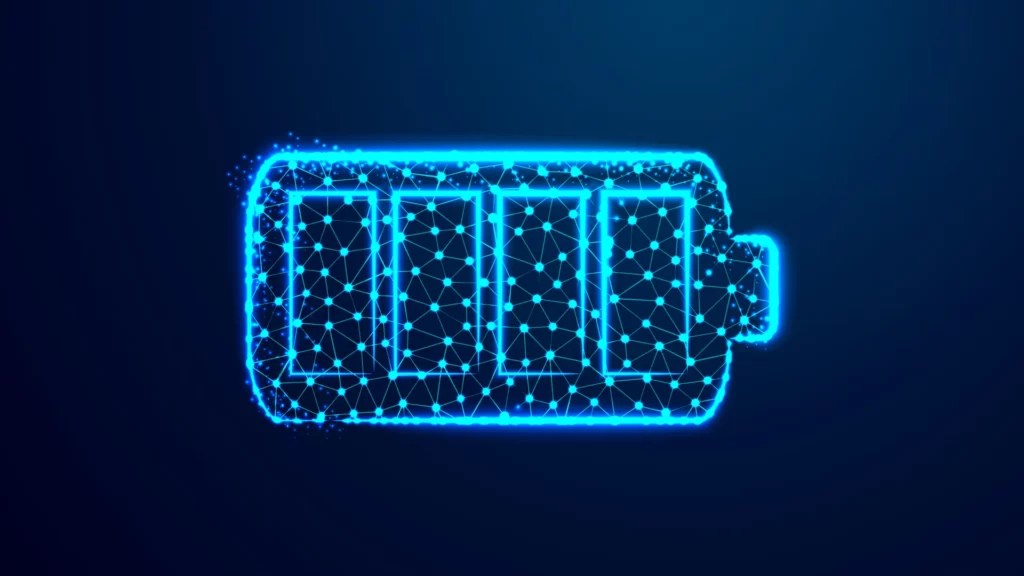
Enhancing Energy Efficiency of Lithium Ion Battery
The energy efficiency of lithium ion battery have become the backbone of portable power, and optimizing their efficiency is paramount. Here is how efficient are lithium ion batteries:
- Temperature Management for Lithium Battery Efficiency
Maintaining the right temperature is essential for preserving lithium battery efficiency. Extreme temperatures can hinder performance. To enhance lithium ion battery efficiency, ensure that your device operates within the recommended temperature range.
- Smart Charging for Lithium Ion Battery Efficiency
Smart charging practices are vital for lithium ion battery efficiency. Overcharging, a common mistake, can stress the battery and reduce lithium ion battery efficiency.
- Capacity Selection and Lithium Battery Efficiency
Selecting the right battery capacity is another critical aspect of optimizing lithium battery efficiency. A battery with excessive capacity may offer longer usage between charges but can lead to a bulkier device.
- Regular Maintenance and lithium ion battery energy efficiency
Proper maintenance is essential for both lithium ion battery efficiency and lithium ion battery energy efficiency. Storing your battery in a cool, dry place can prevent capacity loss due to excessive heat and moisture.
Frequently Asked Questions
What is the Efficiency of a Lithium Ion Battery?
The efficiency of a lithium-ion battery, often referred to as its discharge efficiency, typically falls in the range of 80% to 90%. This efficiency represents how efficient are lithium Ion batteries converts stored energy into electrical power when discharging.
How Long Do Li ion Batteries Typically Last?
Li ion battery efficiency generally last between 2 to 3 years, or about 300 to 500 charge cycles, with proper care and usage. Their lifespan can be extended with smart charging practices and proper storage.
Is It Harmful to Leave My Device Plugged In All the Time?
Constantly charging a Li ion battery efficiency can lead to reduced efficiency and lifespan. It's best to unplug the device once it's fully charged and avoid keeping it at 100% charge for extended periods.
Can I Replace a Ni-Cd Battery with a Li ion Battery?
While it's often possible to replace a Ni-Cd battery with a Li ion battery, it's important to check the compatibility with your device. Li ion battery efficiency require a different charging circuit and may not be interchangeable without proper adjustments.
Lithium Ion Battery Discharge Efficiency?
The lithium ion battery discharge efficiency is important. Typically, these batteries convert 80% to 90% of stored energy into usable electrical power, with the rest being lost as heat.
Li Ion Battery Efficiency Conclusion
Li ion battery efficiency are more than just components in our electronic devices; they are the lifeblood of our digital world. Understanding how they work and how to use them efficiently is crucial for maximizing their performance and lifespan.
By adopting smart charging practices, proper maintenance, and choosing the right battery for our needs, we can ensure that these vital power sources continue to efficiently and reliably empower our lives.

